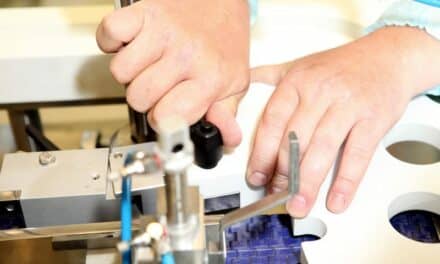During the last 3 years since moving to the United States, I have seen different organizations with different management styles. During the 12 years before that, I also observed several organizations internationally, especially in the Middle East and North Africa region.
In third-world countries, the biomed is seen as the gatekeeper for patient safety in a hospital. The biomedical department does not report to facilities or IT; the biomedical department is a separate entity raised to the same level, if not even higher sometimes. Whether a health care organization is remodeling an old OR or starting up a new hospital, the biomed gives the last signature on the “safe to use” documents, just before the CEO’s stamp. This is simply because biomeds understand the importance of what facilities and IT do, and they are the only people in-house qualified to verify that everything is safe for patients.
During educational seminars I used to present to biomeds at hospitals in the United States, I often asked, “What does a biomed do?” Unfortunately, most of the time the answer I received was, “We maintain equipment and respond to calls.”
If you are wondering why I said “unfortunately,” then you need to read this article carefully.
What Is Biomedical Engineering?
First, let us be clear: I am not referring to biomedical engineering research labs, but rather the department in a hospital, usually located next to the morgue (for some reason I am still trying to discover).
A biomed is a person who can listen, analyze, communicate, and act promptly.
To be a biomed—or may I say, a successful biomed—the topics you need to be skilled at include:
- Human body (anatomy and physiology)
- Biophysics (classical physics applied to the human body)
- Information technology and networking
- Electromechanical engineering
- Optics
- Radiation (origin and safety)
- Lasers and laser safety
- Medical gases
- Mathematics
- Architectural engineering (especially in the consulting world)
Few people inside or outside a healthcare facility combine and possess the above knowledge areas except for the biomed. Any situation in a hospital in which the user (a doctor, nurse, or technician), patient, and equipment intersect must have the biomed in the middle. Otherwise potentially fatal risks could be imposed on all three parties.
US biomeds lack a very important tool to progress and be recognized: self-esteem. I am not trying to embarrass anyone; on the contrary, this is meant as a positive criticism. As a biomed, you need to know your potential and your capabilities. You need to understand your own importance in making sure patients receive the best, safest, most reliable care they can.
For some reason, US biomeds believe that the answer to my first question, “What does a biomed do?” is indeed just maintaining equipment. This attitude in turn has led healthcare organizations’ leaders to look at biomeds from the same perspective. If you do not value yourself, don’t expect others to value you. You have the knowledge, and you have the analytical skills to make use of such knowledge.
How Can You Help Your Organization?
Ali Bin Abi Talib, a son-in-law of the prophet Muhammad, once said, “The value of a person is what he does best.” It is not what he knows best. Biomeds may have knowledge of many different areas, but their hospitals will not recognize it unless biomeds demonstrate their knowledge through their actions. Once biomeds are able to recognize their importance, they will be able to step up and act to add value to their organization through different forums. Some areas where biomeds can be most useful to their facilities include procurement of equipment, education and training, and cost savings.
Equipment specs. Biomeds are experts on equipment specifications, capabilities, and options. End users usually ask for the top-notch model, fully loaded. But that request does not always match actual need. With your expertise helping end users, you will be able to cut out some of the unneeded options, thus increasing the efficiency of the device and saving costs.
Sourcing. Hospitals and healthcare organizations tend to do business with a single vendor for specific equipment, if for no other reasons than simplicity and habit. With your expertise and through being part of biomed societies, you may know of other vendors that can offer the same product. Introducing competition will automatically save you hundreds of thousands, if not millions, of dollars.
Contract terms, and conditions. By being part of the procurement process, you get the chance to request technical training at the point of sale (POS), getting a good price—or sometimes no price. Having an in-house expert can shorten response times from a few hours to a few minutes. Technical training can also add value by reducing maintenance costs. Instead of signing service contracts or paying for both time and materials for maintenance, you pay only for parts.
In-house training. Most organizations send their staff to the vendors or OEMs for in-servicing, sometimes with significant fees. However, any biomed who has been maintaining a piece of equipment can in-service the staff—not just on proper use of the device, but also on how to reduce user errors and damages, and how to unlock hidden secrets in the operation of the device.
Cost savings. Go to medical equipment and biomed conferences and seminars (AAMI, MD Expo, and local state societies such as the California Medical Instrumentation Association and the Michigan Society for Clinical Engineering) and meet the different vendors and third-party service providers. They can save you at least 40% off your maintenance fees. Track how much you spend before you start saving so you can present this information to your C-suite.
I Am a Biomed
We as biomeds should start seriously changing that perspective of ourselves as “repair people” and move towards “the experts.” I stated a few of the major topics we need to be skilled at to be successful. Whether you are a fresh graduate just starting to look for work or an experienced biomed, these skills will be your tools to prepare a multi-tasking, well-recognized, cost-saving, and well-managed biomedical engineering department.
Regardless of whether you are a technician or a manager, you need to be involved in growing the biomedical profession beyond repair. But you need to work with the rest of your department. A manager can go nowhere if his or her technicians are barely repairing equipment, and vice versa: a technician cannot grow and add value if his or her manager is not able to see, feel, and support where the medical devices world is going.
By using your knowledge to help your organization in these areas, you can prove your worth and build value for your facility. It is important to show hospital administrators: You are not just a technician, you are not just a repair person, and your duties are not dispensable.
It is your job to take action and show them what you are capable of. When they ask you how you came to know so many things, tell them, “I am a biomed.”
Nader Hammoud is biomedical engineering manager at University of California San Francisco-San Francisco General Hospital.





This is by far one of the best articles I have read from 24×7. Often I ask myself how is biomedical services truly helping a hospital, especially with such advances in technology where a lot of repairs are either remote or board swapping. This article helps biomeds see the value they hold in the bigger picture, which boosts their confidence in the short run.
I am glad this article was of value to you. Thank you.
Very good article, realistic and important to understand who is a biomed …Thank you.
Mr. Hammoud
Thank you for the article. It gives me a totally different perspective. You made me realize that I have been downplaying my contribution. And this is how management is viewing me. You have a great talent for explaining thins.